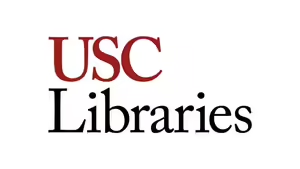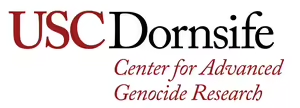Thomas Mann House Events Archive
May 2025
PEN America World Voices Festival: Forced Journeys - Stories of Home, Displacement, and Belonging
Goethe-Institut Los Angeles (1901 W 7th St Suite A/B, Los Angeles, CA 90057)

Information
What does it mean to belong to a place, a nation, a family, one’s own past? To what do we owe our homelands and what happens when we are displaced from them? Novelist Charmaine Craig, whose Burmese mother was both a beauty queen and a revolutionary, illuminates both national and personal trauma in her prize-winning Miss Burma; Héctor Tobar set his novel Tattooed Soldier in Los Angeles before the riots and in his parents’ native Guatemala during the years of military dictatorship. Photojournalist and founder of Refugee Eye, Lara Aburamadan recounts the ugliness of war and the endless cycle of Israeli bombardments in her native Gaza, in an effort to fight the dehumanization of Palestinians, bring about social change, and promote peace. In conversation with Ipek S. Burnett, a Turkish-born author and psychologist; these writers discuss in what ways exile gives them freedom to write, create, or advocate— and in what ways the draw of “home” limits that expression.
This event is presented by PEN America with Thomas Mann House and the Goethe-Institut in the spirit of Thomas Mann’s 150th birthday celebration, who wrote many of his most well-known works from his exile residence in Los Angeles.
The 2025 PEN World Voices Festival, the 20th anniversary of the festival, will be a celebration of world literature and free expression. Over four days, over 80 writers from nearly 30 countries will be featured in engaging talks, panels, readings, and performances in New York City and greater Los Angeles.
Visit https://worldvoices.pen.org/ for more information about the entire festival, as well as PEN America.
Participants

Lara Aburamadan is a Palestinian visual artist, journalist and founder of Refugee Eye. Born and raised in Gaza City, now based in the San Francisco Bay Area, she tends to embrace the human perspective through visual storytelling. Her photographs and writings have been published in Time Magazine, New York Times, Washington Post, VICE, San Francisco Chronicle, and elsewhere. Lara has been chosen by Time Magazine among 34 women photojournalists around the world that you should follow their work in 2017.
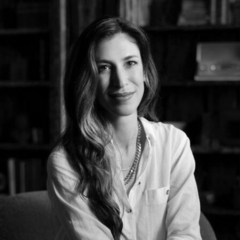
Ipek S. Burnett, PhD, is a Turkish-American author and scholar who offers a psychological lens on social, cultural, and political issues. She is the author of A Jungian Inquiry into the American Psyche: The Violence of Innocence (2020) and the editor of Re-Visioning the American Psyche: Jungian, Archetypal, and Mythological Reflections (2024). Her forthcoming book, Art of Activism: A Psychological Perspective, explores the intersection of psychology, arts, and activism. A published novelist in Turkey, her literary work examines themes of free speech, democracy, and historical consciousness. Based in San Francisco, she serves as Co-Chair of the Human Rights Watch Executive Committee and is on the board of 826 Valencia, a nonprofit dedicated to supporting under-resourced students with their writing skills.
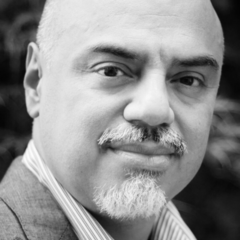
Héctor Tobar is a Los Angeles-born author of six books, including, most recently, Our Migrant Souls: A Meditation on Race and the Meanings and Myths of Latino, winner of the Kirkus Prize and other honors. His nonfiction Deep Down Dark was a New York Times bestseller and adapted into the film The 33. His novel The Barbarian Nurseries won the California Book Award Gold Medal and was a New York Times Notable Book. Tobar’s fiction has appeared in Best American Short Stories, and he earned his MFA from UC Irvine, where he is currently a professor. At the Los Angeles Times he was a foreign correspondent and was part of a reporting team that won a Pulitzer Prize. Tobar has been a Guggenheim fellow, a Harvard Radcliffe fellow, an op-ed writer for the New York Times, and a contributor to The New Yorker, National Geographic, and The New York Review of Books, among many other publications. He is the son of Guatemalan immigrants.
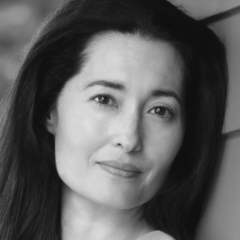
Charmaine Craig is the author of the novels Miss Burma, longlisted for the 2017 National Book Award for Fiction and the 2018 Women’s Prize for Fiction; My Nemesis; and The Good Men, a national bestseller. Her writing has been widely translated and appeared in venues including The New York Times Magazine, Narrative Magazine, AFAR, and Dissent. Formerly an actor in film and television, she studied literature at Harvard, received her MFA from UC Irvine, and serves as a faculty member in the Department of Creative Writing at UC Riverside.
Attendance Details
This Venue is ADA compliant.
ASL interpretation is available for this event by request only. Please reach out to our Box Office team at publicprograms@pen.org by April 21st to request. Please ask a Box Office Attendant or festival representative upon arrival for directions to accessible seating if preferred.
For further information on accessibility in this space, or to make a request, please contact publicprograms@pen.org
Partners



Exiled in Hollywood: Thomas Mann & Arnold Schoenberg at 150
UCLA Faculty Club
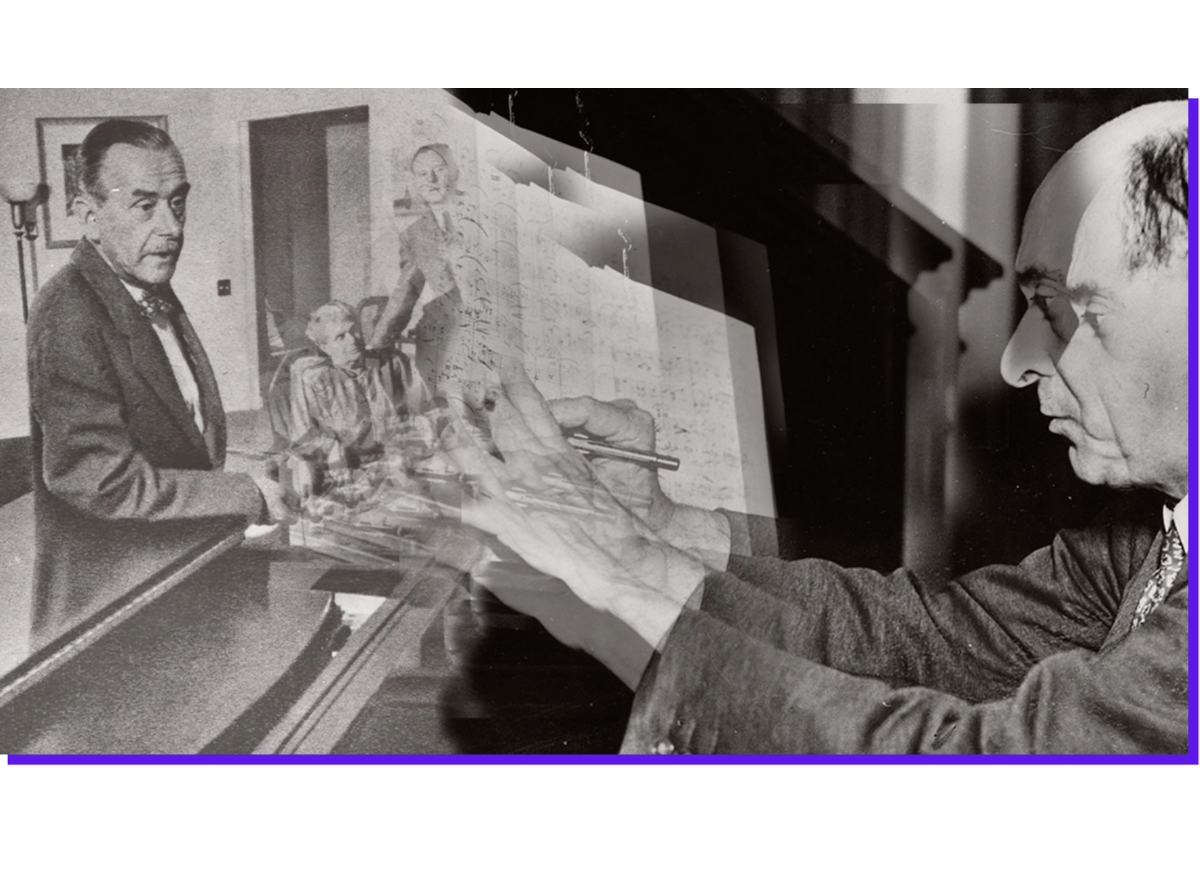
Information
To honor Thomas Mann’s 150th birthday anniversary and to celebrate the West Coast premiere of the opera Schoenberg in Hollywood, produced by the Lowell Milken Center for Music of American Jewish Experience, which explores the hypothetical scenario of what would have happened if Schoenberg had composed for Hollywood, this event will explore the fascinating and complex relationship between two key figures of the German-speaking émigré community and their relationship with the Hollywood film industry.
The opera Schoenberg in Hollywood revolves around a historic meeting between the legendary producer Irving G. Thalberg of Metro Goldwyn Mayer and the Austrian composer Arnold Schoenberg. Thalberg asks Schoenberg to compose music for a film based on Pearl S. Buck’s The Good Earth. While Schoenberg was intrigued by the prospect of creating a Hollywood film score that could reach millions, his demand for a $50,000 fee ultimately led to the project falling through. Meanwhile, Thomas Mann also pursued connections with Hollywood, exploring the possibility of adapting The Magic Mountain and his Joseph saga into films. But despite several discussions with producers and studios, these projects never came to fruition. Mann’s interest in cinema, however, extended far beyond personal ambition. His fascination with the medium dates back at least to 1924, as evidenced in his novel The Magic Mountain, in which the protagonist visits a film theater to watch Ernst Lubitsch's 1920 silent classic Sumurun. During his exile in Los Angeles, Mann developed a deep appreciation for the medium. He frequented his favorite theaters in Westwood, often attending screenings twice a week, and attended Hollywood film premieres. His diaries contain poignant, harsh, and humorous critiques of the films he watched. Mann also built relationships with prominent Hollywood figures, including Jack Warner, Walt Disney, Ernst Lubitsch, Alfred Hitchcock, and others, further cementing his connection to the cinematic world.
This event will delve into the multifaceted relationship between Thomas Mann and Arnold Schoenberg, exploring their Hollywood aspirations, their connections to the film industry, and the cultural exchange between émigrés and Hollywood. European exiled composers, such as Arnold Schoenberg, Erich Korngold, Hanns Eisler, and Franz Waxman, heavily influenced the genre of film music in the 1930s and 1940s. At the same time, Hollywood played a crucial role in supporting refugees, offering work contracts, necessary affidavits, and assistance through non-profit organizations like the “European Film Fund.”
The conversation will be accompanied by a short musical performance by acclaimed pianist Inna Faliks (UCLA Herb Alpert School of Music).
Learn more about Todd Machover’s opera Schoenberg in Hollywood here.
Learn more about the 150th anniversary of Thomas Mann here.
Participants
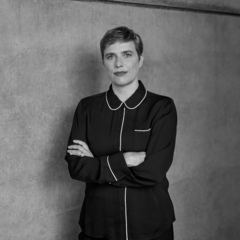
Doris Berger is the Vice President of Curatorial Affairs at the Academy Museum of Motion Pictures in Los Angeles. She was previously a Getty Postdoc Fellow, a Curator at the Skirball Cultural Center, and the Director of the Kunstverein Wolfsburg, Germany. Berger curated the touring exhibition Light & Noir: Exiles and Emigres in Hollywood, 1933-1950 at the Skirball (2014–15). At the Academy Museum, she co-curated the inaugural exhibitions Stories of Cinemaand Backdrop: An Invisible Art (2021), the touring exhibition Regeneration: Black Cinema, 1898–1971 (2022-23), and curated Cyberpunk: Envisioning Possible Futures Through Cinema (2024). She wrote the book Projected Art History: Biopics, Celebrity Culture, and the Popularizing of American Art (Bloomsbury, 2014) among numerous essays on art and film, gender and exile studies.

Inna Faliks - “Adventurous and passionate” (The New Yorker) Ukrainian-born pianist Inna Faliks has established herself as one of the most communicative, and poetic artists of her generation. She has made a name for herself through commanding performances of standard piano repertoire, as well genre-bending, interdisciplinary projects, and inquisitive work with contemporary composers. Her new memoir, Weight in the Fingertips, A Musical Odyssey from Soviet Ukraine to the World Stage, was published by Globe Pequot Press in October 2023. She holds the posts of Professor of Piano and Head of Piano at the UCLA Herb Alpert School of Music
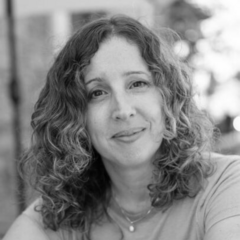
Lily E. Hirsch is a musicologist, with a Ph.D. from Duke University, and Writer-in-Residence at California State University, Bakersfield. She is the author of the books A Jewish Orchestra in Nazi Germany: Musical Politics and the Berlin Jewish Culture League (University of Michigan Press in 2010), Anneliese Landau’s Life in Music: Nazi Germany to Émigré California (Eastman Studies in Music in 2019), Can’t Stop the Grrrls: Confronting Sexist Labels in Music from Ariana Grande to Yoko Ono (Rowman & Littlefield, 2023), and Taking Funny Music Seriously (Indiana University Press, 2024), among others.
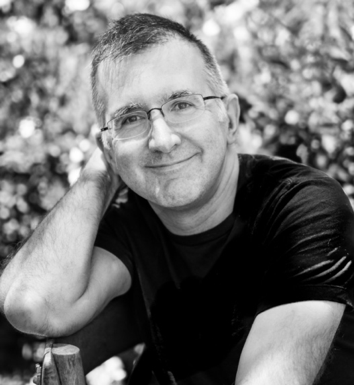
Alex Ross has been the music critic of The New Yorker since 1996. His first book, The Rest Is Noise: Listening to the Twentieth Century, won a National Book Critics Circle Award and was a finalist for the Pulitzer Prize. His second book, Listen to This, is a collection of essays. His latest book is Wagnerism: Art and Politics in the Shadow of Music, an account of Wagner’s vast cultural impact. He has written often about Thomas Mann and the émigré community in L.A. for The New Yorker. He was awarded with a MacArthur Fellowship and the Belmont Prize.
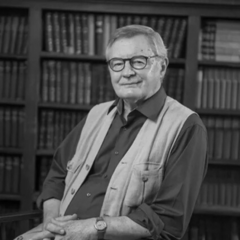
Hans Rudolf Vaget is Professor of German Studies and Comparative Literature at Smith College (Northampton, Massachusetts). He received his academic training at the universities of Munich and Tübingen, the University of Wales at Cardiff and at Columbia University in New York. His research focuses on Goethe, Wagner and Thomas Mann, on which he has published extensively. Recently he published Wehvolles Erbe: Richard Wagner in Deutschland. Hitler, Knappertsbusch, Mann (S. Fischer Publishing House, 2017). He is the author of the seminal book Thomas Mann, der Amerikaner: Leben und Werk im amerikanischen Exil, 1938-1952 and one of the general editors of GKFA (Mann's works, letters, and diaries), published by S. Fischer Verlage.
Partner
This event is organized by the UCLA Herb Alpert School of Music, the UCLA Lowell Milken Center for Music of American Jewish Experience, the UCLA Department of European Languages and Transcultural Studies, and the Thomas Mann House Los Angeles. This event is part of "Mann 2025: 150 Years of Thomas Mann".
An Appeal to Reason: Celebrating Thomas Mann at 150
USC Capital Campus (1771 N St NW Washington, DC 20036)
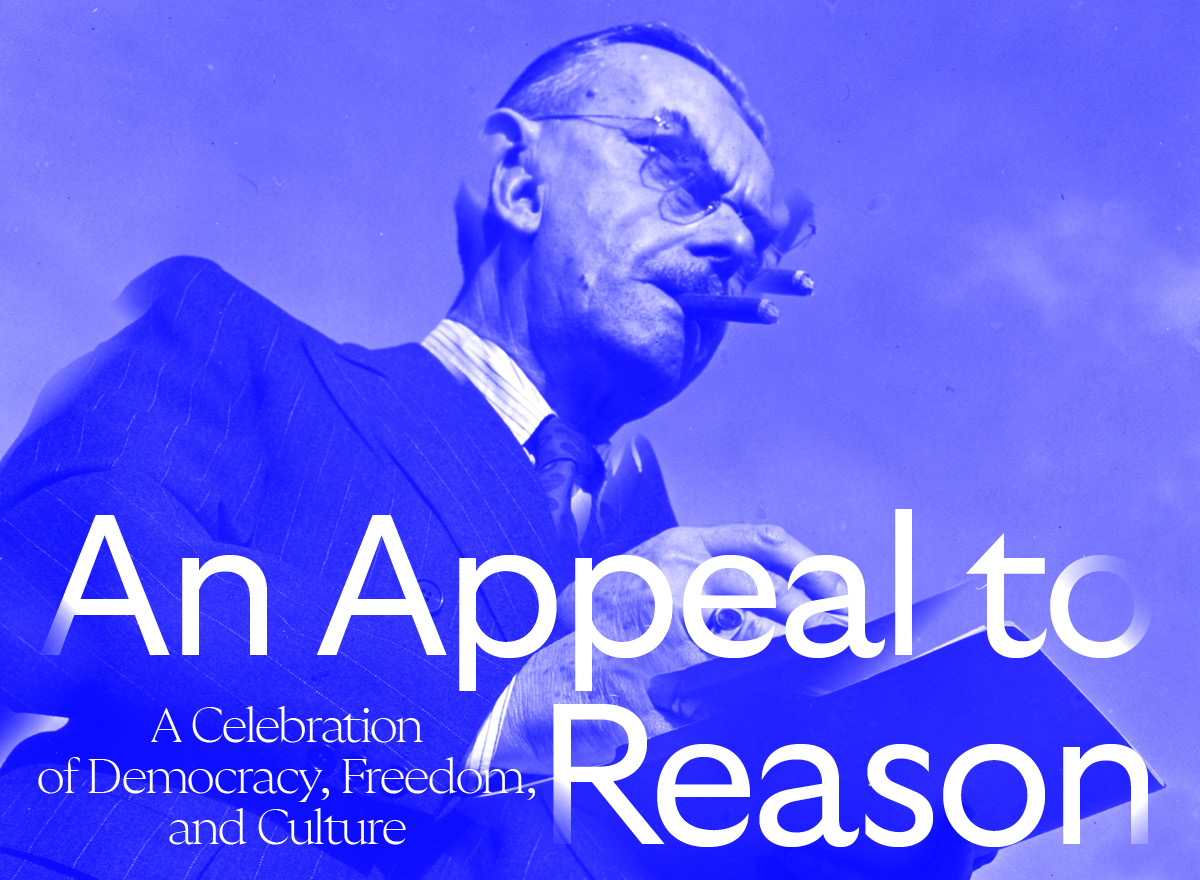
Info
Join us in commemorating the 150th birthday of writer and Nobel-laureate Thomas Mann with a timely exploration of his enduring legacy and its relevance to the challenges facing global democracy, freedom of expression, and the power of literature today. This transatlantic event in partnership with the Goethe-Institut Washington, D.C., the Thomas Mann House Los Angeles, USC Libraries, and the USC Dornsife Center for Advanced Genocide Research takes place at the USC Capital Campus.
This special event will utilize Mann's life and work as a springboard for critical conversations about the present state of our world. In 1941, exiled in the U.S., Mann was appointed Consultant in German Literature at the Library of Congress in Washington, D.C., delivering powerful annual speeches, such as The War and the Future (1943), Germany and the Germans (1945), and Goethe and Democracy (1949). This event will revisit the historic connection between the U.S. capital and Thomas Mann’s renowned speeches to examine his political and artistic legacy in the context of contemporary challenges on both sides of the Atlantic. The event will feature panel discussions, lectures, a recital, as well as a sound artwork by Grammy-nominated musician Kokayi.
Program
Goethe-Institut Washington
Thomas Mann House Los Angeles
USC Libraries
Hans Rudolf Vaget, Professor of German Studies and Comparative Literature at Smith College and Thomas Mann expert, on Thomas Mann's life, work, and relevance.
Reading by Renea S. Brown, actor, writer, and educator
Panel discussion featuring best-selling writer, poet, and scholar Clint Smith and Summer Lopez, Co-CEO and Chief Program Officer at PEN America, and moderated by human rights advocate Kimberly Marteau Emerson.
The conversation will explore the vital importance of the relationship between literature and democratic principles in a comparative and transatlantic perspective. What can writers and literary institutions contribute to societies when democracies come under pressure? The talk examines how the arts can serve as an essential tool for societal reflection and change.
Sound Performance by Grammy-nominated musician and artist Kokayi.
In a keynote dialogue, author Azar Nafisi and political scientist Daniel Ziblatt will address complex questions, such as a citizen's role in defending and upholding democratic values, the subversive power of literature, and how to bring disenfranchised citizens back into dialogue.
Attendance Details
This event is free and open to the public!
Please RSVP here.
Accessibility:
This venue is ADA compliant. The event will take place in English, with ASL Interpretation from Pro Bono ASL. Please ask an attendant or event representative upon arrival for directions to accessible seating if preferred. For other accessibility needs, please email teddy.rodger@goethe.de.
This program is open to all individuals. USC operates all of its programs and activities consistent with the University's Notice of Non-Discrimination. Eligibility is not determined based on race, sex, ethnicity, sexual orientation, or any other prohibited factor.
Participants

Renea S. Brown is a Helen Hayes Award winning actor in DC. She has appeared at The Shakespeare Theatre Company, Arena Stage, The Folger Shakespeare Theatre, Chesapeake Shakespeare Theatre, and Round House Theatre and more. You can watch her on Law and Order and Godfather of Harlem on MGM+, or see her work in the world premier of The American Five as Coretta Scott King at Fords Theatre this fall.

Kimberly Marteau Emerson is a lawyer, advocate and non-profit leader in human rights, education and foreign policy, especially transatlantic relations. She speaks regularly at conferences and gatherings in Europe and the US. In June 2023, she was appointed by President Biden to serve on the US Holocaust Memorial Council. Ms. Emerson also currently serves as Vice Chair of the Board of Human Rights Watch, Chair of the Board of Governors of Bard College Berlin, and on the Board of Trustees of Bard College in Annandale-on-Hudson. She serves on the Advisory Boards of the Thomas Mann House, foreign and domestic policy retreat center the Annenberg Foundation Trust at Sunnylands, the USC Center on Public Diplomacy, the German-American Institutes, and German social impact consultancy PHINEO. She is a member of the Council on Foreign Relations and the Pacific Council on International Policy.
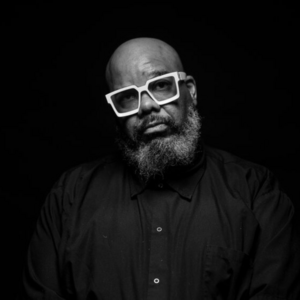
Kokayi is a GRAMMY-nominated musician, improvisational vocalist, producer, author, speaker, and multidisciplinary fine artist. A Guggenheim Fellow for Music Composition—the first emcee to receive the honor—he is also a Halcyon Arts and Nicholson Arts Fellow, and a TEDxWDC presenter. He is author of You Are Ketchup: and Other Fly Music Tales (Globe Pequot). Kokayi is a longtime collaborator and Board member with OneBeat, and has served as a U.S. State Department music emissary. A committed advocate for DC’s indigenous music, Kokayi served in multiple leadership roles within the Recording Academy, including Chapter President and National Trustee, where he helped establish go-go as an official genre within the Regional Roots category—cementing its legacy within music history.

Summer Lopez is PEN America’s Interim Co-CEO and Chief Program Officer, Free Expression. She has been with the organization since November 2017 and has led PEN America's advocacy, research, and programming in defense of free expression in the U.S. and globally. Lopez has worked to advance democracy and human rights in the nonprofit and government sectors, including for eight years with the U.S. Agency for International Development (USAID) and three years with The AjA Project. Her writing has appeared in outlets including The Washington Post, TIME, The Daily Beast, and the New York Daily News. She has lived and worked in Zimbabwe, Egypt, Nepal, India, and Ghana, and holds a BA from Harvard University and a master's in public affairs from the Princeton School of Public and International Affairs.
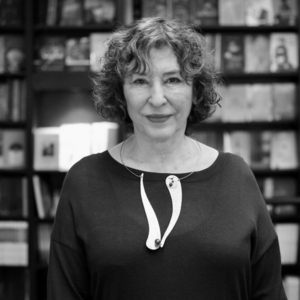
Azar Nafisi is a lifelong champion and ardent supporter of the importance of Humanities and Liberal Arts and the role they play in the preservation and promotion of democracy. She is the author of the New York Times bestseller Reading Lolita in Tehran: A Memoir in Books, which has won diverse literary awards. Nafisi was a Fellow at the Foreign Policy Institute of Johns Hopkins University’s School of Advanced International Studies (SAIS) in Washington, DC, and Director of The Dialogue Project & Cultural Conversations. She has lectured and written extensively on the political implications of literature and culture, as well as the human rights of the Iranian women and girls. She has been consulted on issues related to Iran and human rights both by the policy makers and various human rights organizations in the US and elsewhere.

Clint Smith is the author of the narrative nonfiction book, How the Word Is Passed: A Reckoning With the History of Slavery Across America, which was a #1 New York Times bestseller, winner of the National Book Critics Circle Award for Nonfiction, the Hillman Prize for Book Journalism, the Stowe Prize, and selected by the New York Times as one of the 10 best books of 2021. He is also the author of the New York Times bestselling poetry collection Above Ground and the award-winning poetry collection Counting Descent. His writing has been published in The New Yorker, The New York Times Magazine, Poetry Magazine, The Paris Review, and elsewhere. Clint received his B.A. in English from Davidson College and a Ph.D. in Education from Harvard University. He is a staff writer at The Atlantic.
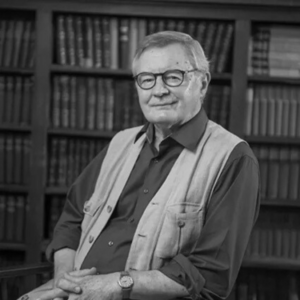
Hans Rudolf Vaget is Professor of German Studies and Comparative Literature at Smith College (Northampton, Massachusetts). He received his academic training at the universities of Munich and Tübingen, the University of Wales at Cardiff and at Columbia University in New York. His research focuses on Goethe, Wagner and Thomas Mann, on which he has published extensively. Recently he published Wehvolles Erbe: Richard Wagner in Deutschland. Hitler, Knappertsbusch, Mann (S. Fischer Publishing House, 2017). He is the author of the seminal book Thomas Mann, der Amerikaner: Leben und Werk im amerikanischen Exil, 1938-1952 (S.Fischer Publishing House, 2011).
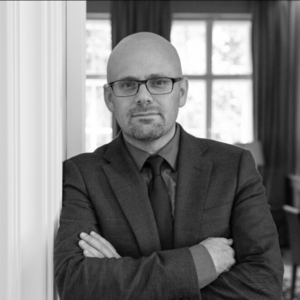
Daniel Ziblatt is the Eaton Professor of Government at Harvard University where he is also the director of the Minda de Gunzburg Center for European Studies. He leads a research group at WZB Berlin Social Science Center, Germany. His current research focuses on the comparative study of democracy and authoritarianism with a focus on Europe and the United States. He is the author of the New York Times bestseller How Democracies Die (2018), co-authored with Steven Levitsky. In 2023, he published Tyranny of the Minority (w/ Steve Levitsky), an analysis of American democracy in comparative perspective. He is also the author of the book Conservative Parties and the Birth of Democracy (Cambridge University Press, 2017), a history of democracy in Europe, in addition to Structuring the State (Princeton University Press, 2006). In 2023, Ziblatt was elected member of the American Academy for Arts and Sciences.
Partners

